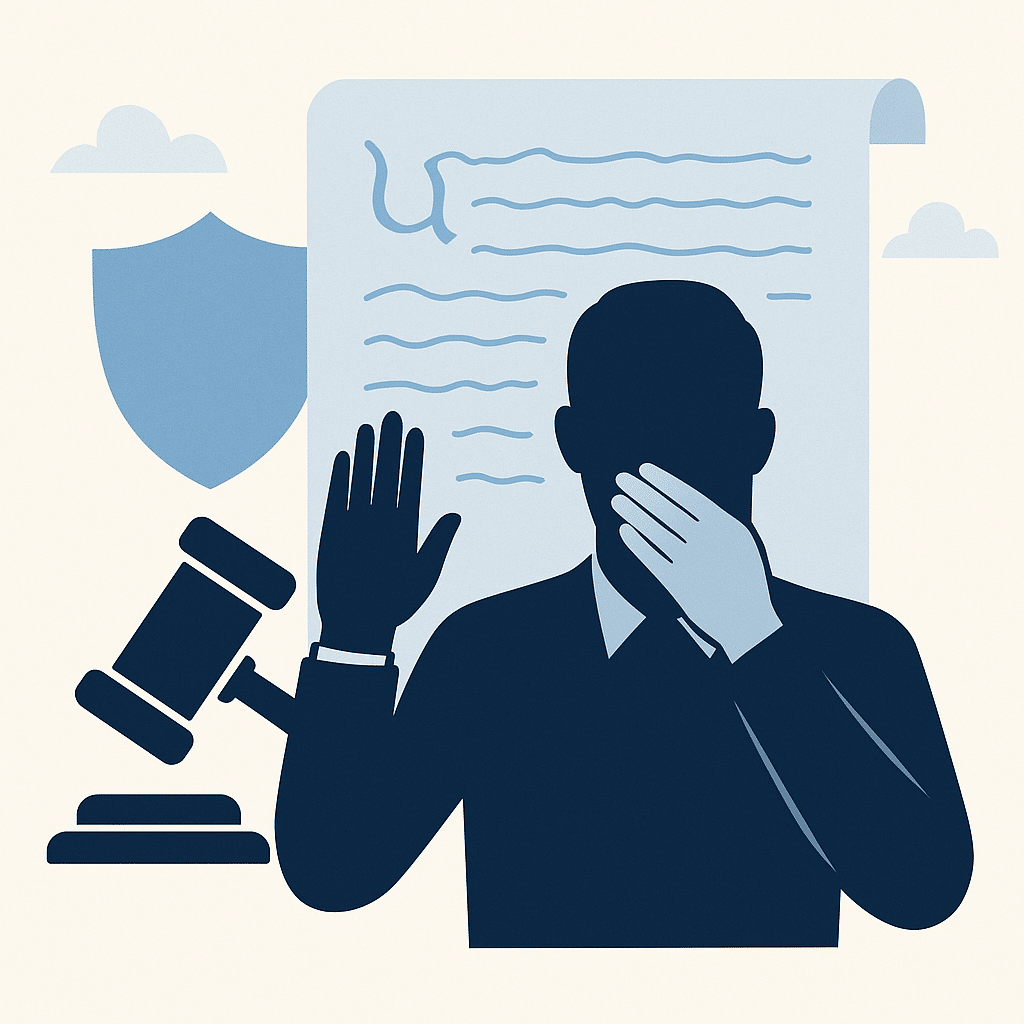
If you’ve ever watched a courtroom drama or followed a high-profile legal case, you’ve likely heard the phrase: “I plead the Fifth.” But what does it actually mean—and when can someone legally say it?
In the United States, pleading the Fifth is shorthand for invoking the Fifth Amendment right against self-incrimination. This right allows individuals to refuse to answer questions or provide information that could be used to implicate them in a crime. It’s a powerful legal tool with deep constitutional roots and significant implications in both criminal and civil proceedings.
The Origin: The Fifth Amendment to the U.S. Constitution
The phrase “plead the Fifth” comes from the Fifth Amendment, part of the Bill of Rights, which states:
“No person… shall be compelled in any criminal case to be a witness against himself…”
This clause protects individuals from being forced to testify or answer questions that might expose them to criminal liability. It applies not only in courtrooms but also during police interrogations, congressional hearings, depositions, and other legal settings.
Who Can Plead the Fifth?
The right to plead the Fifth belongs to individuals, not entities. Corporations, LLCs, and other business structures do not have Fifth Amendment rights, although the individuals who run them do.
This protection applies to:
- Defendants in criminal trials who choose not to testify
- Witnesses who are asked questions that might incriminate them
- People under investigation who are questioned by law enforcement
- Anyone in a civil case if the answer could lead to criminal exposure
When Can You Plead the Fifth?
You can invoke the Fifth Amendment any time you’re being asked a question where your answer could be used as evidence of a crime. Common scenarios include:
1. During Police Interrogations
If you’re detained or questioned by law enforcement, you can say:
“I invoke my Fifth Amendment right and choose to remain silent until I speak with an attorney.”
This protects you from accidentally saying something that could be used against you—even if you believe you’re innocent.
2. While Testifying in Court
Witnesses and defendants may plead the Fifth during a trial. This usually means refusing to answer a specific question, not the entire line of questioning—unless every answer poses a risk of self-incrimination.
3. In Depositions or Civil Hearings
You can plead the Fifth in a civil case, but there’s a key difference: the jury may draw a negative inference from your silence, unlike in a criminal case where such inferences are generally prohibited.
How to Properly Invoke the Fifth
To gain legal protection, you must explicitly assert your Fifth Amendment right. Simply staying silent without saying you’re invoking the Fifth can be risky, especially if you’re not yet under arrest or in a formal legal setting.
Here’s how to do it:
- Be clear and direct. Say: “I plead the Fifth” or “I invoke my Fifth Amendment right.”
- Do not answer the question first. Once you start talking, you might unintentionally waive the protection for that subject.
- Use an attorney. A lawyer can guide you on when and how to invoke your rights correctly and whether doing so is in your best interest.
What Pleading the Fifth Does Not Cover
There are limits to what the Fifth Amendment protects. It does not:
- Allow you to avoid all questioning—only those that could incriminate you
- Protect against the use of physical evidence like fingerprints or DNA
- Prevent you from being subpoenaed to testify
- Apply to business records held by a corporation or third party
Should You Plead the Fifth?
Pleading the Fifth can be wise when:
- You are under criminal investigation
- You are unsure whether your answer might link you to a crime
- You are a witness in a case with overlapping criminal implications
But it can also raise eyebrows, especially in public settings or civil courtrooms. Consulting with a criminal defense attorney is essential before deciding to invoke this right.
Final Thoughts
The right to plead the Fifth is a cornerstone of American criminal law and a vital safeguard against self-incrimination. It’s not an admission of guilt—it’s a legal tool designed to protect your freedom and ensure a fair process.
If you’re unsure about how to handle police questioning, court testimony, or legal discovery that may implicate you in a crime, speak with an experienced criminal defense lawyer before saying anything.
Need Legal Help in Southern Maryland?
If you’ve been questioned, subpoenaed, or charged with a crime, you have constitutional rights—including the right to remain silent. At Southern Maryland Criminal Defense, we can help you understand when to assert your rights and how to protect your future.
